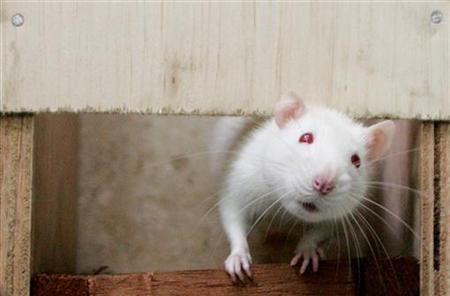Researchers have discovered that when they administered the RGFP966 cancer drug to rats, their hearing became sharper and their memory generally improved. While no cure for Alzheimer's exists to stop the shrinking and dying of brain cells, one day the histone deacetylases (HDAC) inhibitor used to block the transformation of healthy cells into cancerous cells as the link between neurons weakens, could reverse the progression of dementia, and help people to learn to speak again or master a second language.
The findings were published in the Journal of Neuroscience. It was conducted by Rutgers University.
Researchers learned that the cancer-fighting drug improves the connections between neurons and boosts their ability to create memories. They also learned that the lab rats remembered music, and were "tuned in" to certain acoustic signals.
Lead author Kasia M. Bieszczad is an assistant professor in Behavioral and Systems Neuroscience at Rutgers. She said that the new type of treatment could be used to treat cochlear implant patients.
The drug therapy could also benefit language learning. That includes people learning to speak again after an injury or disease, or people trying to pick up a second language, according to Science World Report.
The rats' being able to "tune in" explains the possible applications for human speech and language. That is because the brain's ability to process and store key sounds is important for those activities, according to Futurity.org.
In the researcher's study the rodents' boosted processing of auditory data allowed their brains' neurons to regroup and make new pathways. That permitted more of their learning to become part of their long-term memory.
Bieszczad explained that people only remember certain details of an experience, and forget some things that are seen, heard, or felt. In the lab experiments the rats' memories became more like a snapshot of the real experience rather than being limited or incorrect.



























